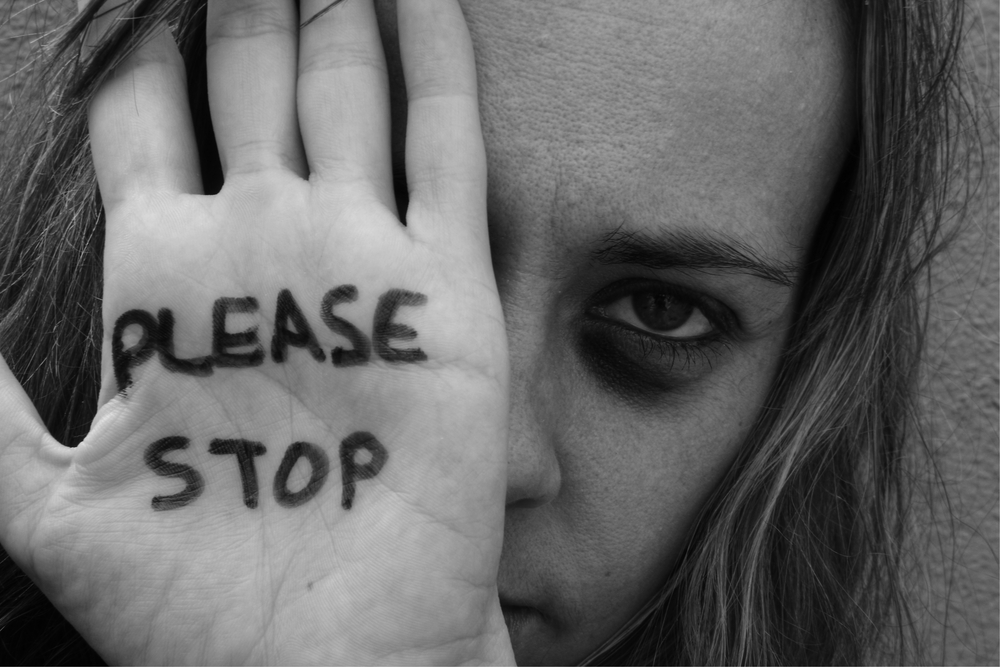Jacy* thought she had met her “prince charming.” She thought she had married the man of her dreams; a man that could be a father figure to her three children from a previous marriage.
After a short whirlwind romance, the couple began taking pre-marital counseling from the men’s ministry pastor at a local church. Four days after saying, “I do” surrounded by her friends and family, everything changed.
The abuse started with punching walls, hitting things, and cornering her. It quickly turned more violent, with incidents that would result in her being chased around the home. Jacy would call him the “hulk,” because when he would get angry, she said he would lose his mind. Occasionally, when her husband would lose control she would call the same pastor for help calming him down, and for advice.
“He told me that I had a house of men, and men behave like dogs. He said they were just trying to claim their territory,” Jacy said. “He told me I needed to learn to be the woman, to be submissive; that I was used to being the leader in the house, but that needed to change now that I was married.”
Unsurprisingly, that theory did not end the violence. When it escalated and her former husband started throwing things at her sons and pushing them, Jacy made him leave the home and filed for separation.
“He would say things to [the pastor] like ‘I’m afraid of what I could do to her when I am angry, because it feels good to scare her,” Jacy said.
Three years later, Jacy still feels the sting from the pastor’s ignorance. She said that while she was lucky to have a strong support system through the church’s women’s ministry and the elder board, the words of the men that she trusted to protect her still cause her daily pain. She said her ex-husband is a broken man, but the feelings of shame evoked by the words of the pastor felt almost more tragic than the abuse itself.
“I was uncomfortable talking about it because I am an educated woman. I am a smart, independent, assertive woman and this happened to me,” Jacy said. “When I was able to put myself out there and let my dirt be known, and he tells me it’s not real…I felt shut down.”
The Arizona Coalition to End Sexual and Domestic Violence reported that 1 in 4 women will experience domestic violence at some point in their lifetime, and 88 Arizonans, 11 being children, have died in 2015. Recently, the Valley felt the impact of the Tempe Town Lake tragedy. A man with a history of domestic violence deliberately drove his car into the water, killing his wife and three children.
Laurie Roberts, opinion columnist for The Arizona Republic, reported on the tragedy and was shocked by some of the comments she received. A number of readers felt it was “distasteful” to report the details of the domestic violence that led to the death of a family. In response, Roberts wrote another article where she challenged her readers to confront domestic violence head on, to not close their eyes to victims just because it is uncomfortable. She told readers, “Don’t look away.”
“Domestic violence is ugly and it is uncomfortable to see. I think it is something we need to see when we have the opportunity to see it,” Roberts said. “The idea that [readers] would rather just look away and not see it, struck me as what we do in society. We prefer not to see it…we look away.”
In response, the Arizona Coalition to End Sexual and Domestic Violence started a movement of awareness and education on domestic violence and created the hashtag #Don’tLookAway.
The chief executive director of the organization, Allie Bones, said that it is not just abusers that need to change, but society as a whole in regards to the way we view domestic violence, and the stigma that is created as a result.
“There is a lot of feelings of shame for victims, and the belief that they caused the violence and victimization. That’s not true. It’s a choice that a perpetrator makes to use violence and have control over someone else,” Bones said. “That is a part of our message, making sure victims know they are not at fault, that there’s help, and that they do not deserve to be abused.”
Bones said that videos, like the infamous video of Ray Rice in the elevator, have made domestic violence a more accessible topic for the general public and have created more awareness on the impacts it can have on victims. However, she said she believes we have a ways to go before culture stops condoning violence against women.
To change a culture of deliberate ignorance requires communities to develop a greater sense of urgency for protection for victims of domestic violence. How many more Tempe Town Lake tragedies need to happen before we stop looking away? And how many stories like Jacy’s will occur before we do.
*The victim has requested that her name and the ex-husband’s name be omitted.



